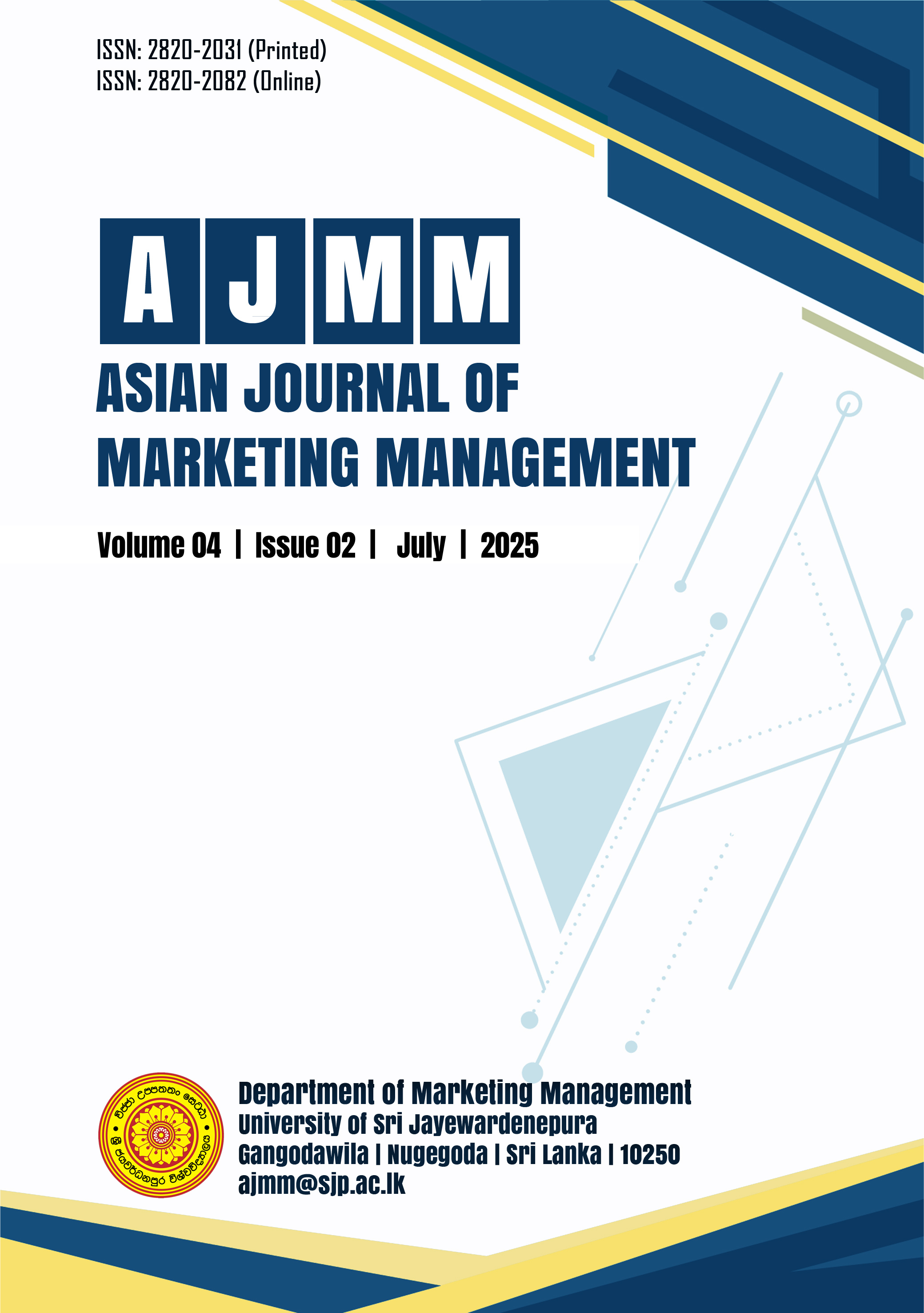A Gift for Me is a Lift for Me: Self-gifting Motivations, Purchase Decision Involvement, and Customer Satisfaction
DOI:
https://doi.org/10.31357/ajmm.v4i2.8031Keywords:
Customer Satisfaction, Goal Setting Theory, Purchase Decision Involvement, Self-Gifting Behaviour, Self-Gifting MotivesAbstract
Purpose: Self-gifting, a growing type of consumption behaviour, is often urged for diverse reasons, as many buying habits of today have become more self-oriented. Although self-gifting is widely accepted from the lens of an impulsive decision, this study challenges this notion of spontaneousness, revealing the different underlying motives and varying levels of purchase decision involvement. Based on the Goal Setting Theory, this paper establishes the relationships among self-gifting motives, purchase decision involvement, and customer satisfaction.
Design/methodology/approach: Accordingly, a quantitative study was carried out following the positivist research paradigm and deductive approach. Using a self-administered questionnaire, 204 usable responses were gathered from Sri Lankan consumers above 18 years old who buy gifts for themselves occasionally or frequently.
Findings: Findings unfold that self-gifting behaviours are not always impulsive, where certain motives (i.e., reward, personal disappointment, positive mood reinforcement, and hedonic) entail different levels of purchase decision involvement. Notably, customer satisfaction cannot be assured with some self-gifting motives (i.e., hedonic, negative mood reduction, and celebratory). However, the mediation analysis underscores that the relationship between particular self-gifting motives (i.e., reward, personal disappointment, positive mood reinforcement, and hedonic) and customer satisfaction is mediated by purchase decision involvement, while it fully mediates the relationship between personal disappointment self-gifting and customer satisfaction.
Originality: This study challenges the prevailing notion that self-gifting is primarily impulsive and presents it instead as a goal-oriented behaviour with varying levels of decision-making and satisfaction. It uniquely applies Goal Setting Theory to the context of self-gifting.
Implications: These findings direct the understanding of self-gifting as a goal-oriented behaviour, emphasizing how different self-gifting motives (goals) carry varying levels of purchase decision involvement and satisfaction. Theoretical implications are discussed in line with self-gifting and Goal Setting Theory and practical implications are proposed for marketers who can leverage the findings in crafting strategies targeting self-gifters.





